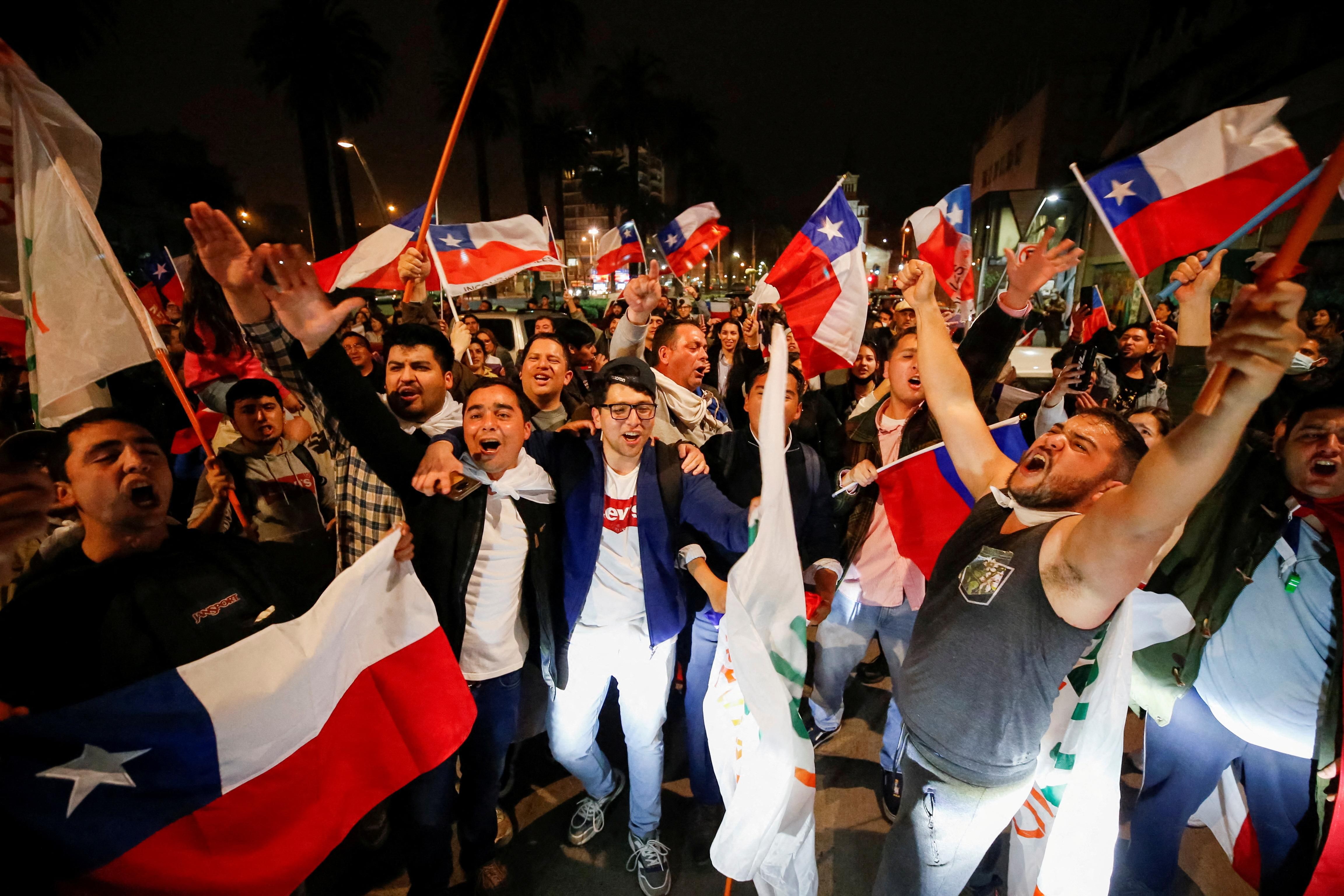Sometimes the worst defeats can be the best new beginnings.
It’s been more than a week since Chile’s ultra-progressive draft constitution suffered a landslide rejection. Two-thirds of Chileans voted against it. Turnout was the highest in 30 years. The “No” vote won across every region and major demographic. It wasn’t even close.
But as Chile’s lawmakers get to work this week to map out a do-over, could that stunning defeat actually be a good thing for Chile’s polarized democracy?
There have been many post-mortems on the draft constitution. Some Chileans were wary of its progressive promises on economic and social issues. Others were worried about its establishment of a “plurinational state” or were baffled by woolly clauses about “transverse dialogue between the diverse cosmovisions of the peoples and nations.”
Many voted it down simply because it was supported by the young, left-wing President Gabriel Boric, whose struggles with the economy and crime have cratered his approval rating after just six months in office.
But the biggest issue, according to Isabel Aninat, a policy expert and dean of the law school at Adolfo Ibáñez University in Santiago, is that neither the document nor the constituent assembly that wrote it ended up reflecting the attitudes of the average, median voter. “Chilean voters are much more moderate and much less polarized than the elites,” she says.
And those average voters still want change. A new poll by Chile’s Cadem pollster shows two-thirds of Chileans stillwant to rework or replace the existing constitution, which means there’s an opportunity to do it all over in a way that builds a stronger consensus and yields a document that can win approval.
“The people who are writing the new one are going to have to be careful,” says María Luisa Puig, an Andean region expert at Eurasia Group. “They’ll need to think ‘if I don’t pull together a product that is as consensus-building as possible, the thing is going to be rejected again,’ and then it’s end of story — you can’t be rejected twice.”
That process is what lawmakers are hashing out right now. Lower house President Raúl Soto said Monday that the country’s political parties and the president are “advancing, without rush but without pause” on the roadmap towards a second constitutional process, which could be released before the country’s Independence Day, September 18th.
Key questions surround the timing of new referenda and time limits on new drafting conventions. But the most important issue, says Aninat, is who does the writing.
The last constituent assembly was elected by a low-turnout vote during the pandemic, and it included a number of independents who in practice skewed heavily towards the left or who were seen as unserious – one leading member was outed for faking a cancer diagnosis, while another asked to vote on the document by video from his shower. These individual antics had an outsized impact on people’s perceptions of the work the assembly was doing.
The new process will need to address the participation of independents, perhaps favoring established party representatives instead. And it will almost certainly include a number of appointed experts to help guide the process.
A strong slate of candidates could help the parties rebuild some of the trust that ordinary Chileans have lost in their political system, says Aninat. In a 2021 Latinobarómetro regional study, only 22% of Chileans felt “close” to their political parties.
The defeat has given Boric an opportunity to correct course too. Grappling with a 39% approval rating, he reshuffled his cabinet last week, ousting two long-time allies from his student radical days and replacing them with figures from the country’s traditional center-left. With three and a half years left in his term, the stunning, early defeat he suffered on the constitution offers a chance to reset.
There’s no guarantee that Chile will get it right the second time around. There are still divisions in Chilean society over many issues that constitution-writers will have to grapple with – the state’s role in the economy and the environment, the rights of Indigenous communities, abortion rights, and so on.
And even among those who want to move on from the current constitution, there are splits about whether to replace it entirely, or merely to update it.
But the decisive blow of the “No” vote has provided an opportunity to reset the terms of the debate and to structure it in a way that drives towards greater consensus. In a region where radical shifts from left to right are becoming the norm, Chile has an opportunity to set a different example.
Aninat says that whereas this first constitutional process was “cathartic” – coming out of the massive social upheavals of 2019 and 2020 — “the new process can be more reflective. We have a chance to put our thoughts into the next 30 years and leave that catharsis behind.”
